Determination of Neonicotinoids in Honey using a Chromolith RP-18 HPLC column and UV Detection
Anita Piper
Life Science Application Centre (GAC), Darmstadt, Germany
Introduction
Neonicotinoids are water soluble insecticides. They are used for crop protection and can migrate from treated soil into plant tissue and flower nectar. Neonicotinoids have a negative effect on brain cells of honey bees, and colony collapse can occur. [Clothianidin, Imidacloprid and Thiamethoxam are banned in Germany, (EU) No. 485/2013].
This application focuses on HPLC testing of neonicotinoids in honey. The limit of detection (LOD) and limit of quantitation (LOQ) for neonicotinoids is better than 30 µM and 90 µM, respectively, when using HPLC combined with UV detection.

Chromatographic Data - blank run
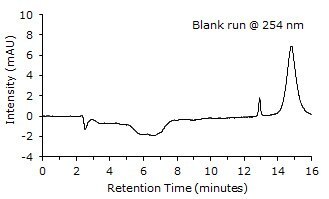
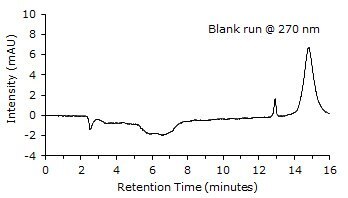
Chromatographic Data - Standard Solution
Standard Solution (200 µM @ 254 nm)
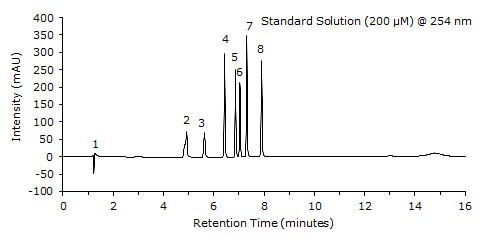
Standard Solution (200 µM @ 270 nm)
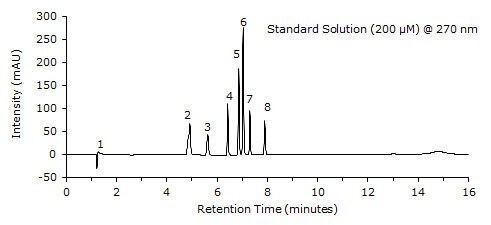
Chromatographic Data - Sample Solution spiked
Sample Solution Spiked @ 254 nm
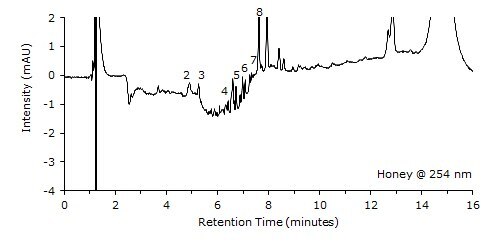
Sample Solution @ 270 nm
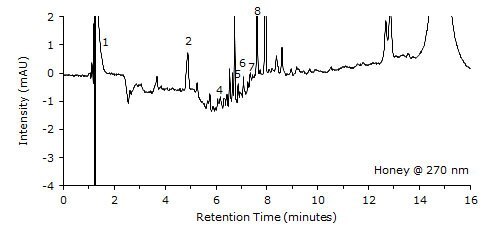
Chromatographic Data - Sample Solution spiked
Sample Solution Spiked @ 254 nm
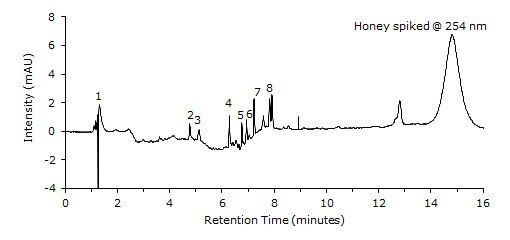
Sample Solution Spiked @ 270 nm
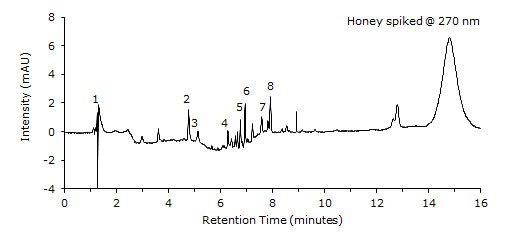
4. Linearity (area mAU*min)
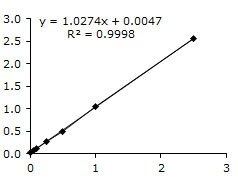
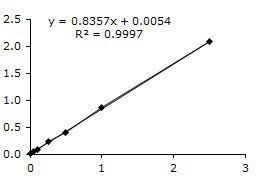
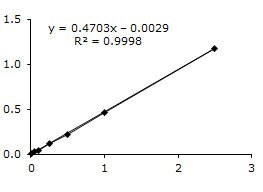
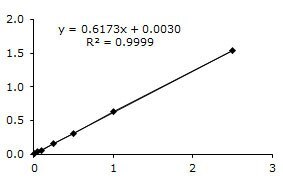
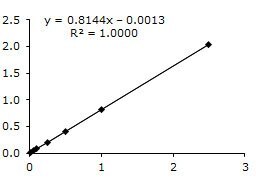
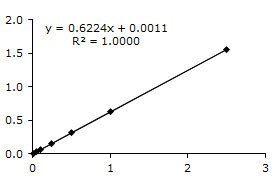
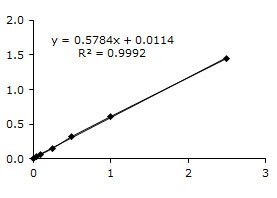
Materials List
To continue reading please sign in or create an account.
Don't Have An Account?